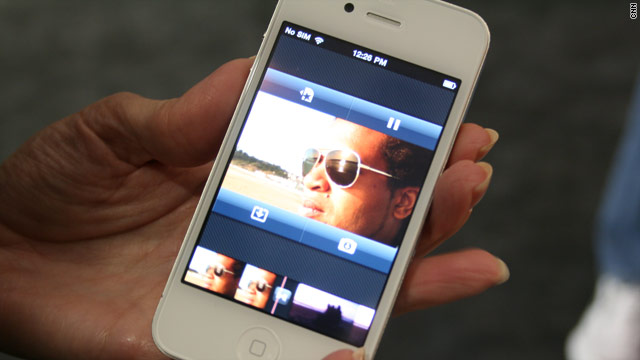Farewell, Yahoo! - Yahoo! NewsNerdBoyTV NOTE: This is definitely the end of an era. I've been reading Christopher Null's column (and of course linking to it here on NerdBoyTV) for YEARS!!!! He even thanked me for a link or two in the past...nice guy. Yahoo! Technology just won't be the same. Read his farewell column below. Best of luck to you, Christopher. And yes, I WILL continue to follow you, buddy."They say that all good things must come to an end, but it was honestly starting to feel like my work here at Yahoo! would never be one of them.
And yet, after four and a half years, it is. Today is my last day as a tech blogger with Yahoo!, and looking back at the numbers, it almost brings me to tears. Some 3,000 posts. Roughly a million words written (that’s the equivalent of the entire 'Harry Potter' book series). Four CES trade shows. And more editors than I can count across two sites within Yahoo! — Yahoo! Tech, then Yahoo! News.
To put the time frame in perspective, when I started blogging here, Windows Vista hadn’t even been released, much less Windows 7. The iPhone wasn’t even part of the rumor mill. Twitter did not exist. And Facebook was still closed to everyone but students.
I couldn’t say goodbye without thanking everyone who was a key part of my experience at Yahoo! And yet there are too many to mention by name, from Pat Houston and Annette Cardwell, who initially recruited me in late 2005, to Jennifer Harmon and David Kaplan, who have read and corrected my recent posts to make sure I’m not spreading inaccuracies and misspellings to the world. (Editors' note: And thank you, Chris! Jennifer *Karmon* and David *Caplan* have been happy to oblige!) Thanks as well to fellow bloggers, past and present — Ben Patterson, Gina Hughes, Becky Worley, Robin Raskin, and Dory Devlin — as well as those behind the scenes over the years: Leah Hitchings, Sam Silverstein, Richard Vega, Jamie Mottram, Roger Hibbert, Alex Yoon, and that vast and cryptic sea of Yahoo! engineers who somehow made it all work.
My plans from this point are still being sorted out — a few days off isn’t going to kill me — but you’ll still find me blogging and covering the tech space at other Web destinations and in print. If you’d like to keep an eye on my work going forward, check out my personal blog at www.chrisnull.com, or become a Fan on my Facebook page or follow me on Twitter. Links for both are below.
You’ll also find additional contact links at chrisnull.com if you’d like to keep in touch or ask a question. It’s been a real pleasure serving all of you readers for all these years; I’ve heard from thousands of you directly and greatly appreciate all the feedback you’ve offered, ideas for posts, and even the gifts you’ve sent me in the mail. (You know who you are!)
Happy trails, y’all, and if you hang on to anything I’ve written over the years, remember this: Whatever you do, don’t forget to back up your PC!
— Christopher Null was a technology writer for Yahoo! News.
- Sent using Google Toolbar"
 September 18 deemed 'No Device Day' | Crave - CNET
September 18 deemed 'No Device Day' | Crave - CNET
















